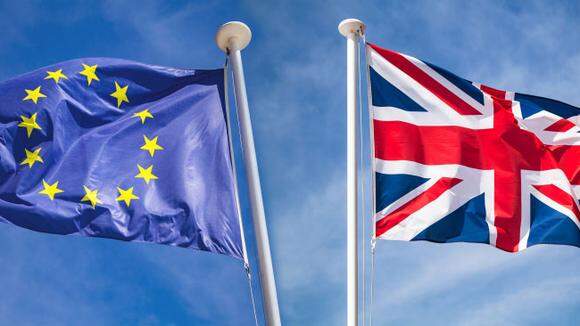Eight out of 10 companies experience greater disruption after Brexit
Eight out of ten Swedish companies have experienced, or expect to experience, increased bureaucracy due to customs formalities in the wake of following Brexit, according to new figures released by the Confederation of Swedish Enterprise.

– This is proof that Brexit has been neither frictionless nor tariff-free, says Anna Stellinger, the Confederation’s head of international and EU affairs.
Eight out of ten Swedish companies trading with the UK have experienced, or expect to experience, problems due to extra red tape when goods cross the EU UK border. This can result in higher costs and longer lead times. These are the key findings of a recent survey by the Confederation of Swedish Enterprise.
– We knew that this would happen the moment the UK left the EU. There simply are no free-trade agreements that mean border controls will disappear. Although 80% is high, it is unfortunately in line with our expectations what we expected, says Stellinger.
– Unlike customs duties, customs formalities are something you can’t get around. If a country is outside the EU, it inevitably generates more red tape when goods cross borders, explains Henrik Isakson, Director for trade policy at the Confederation.
– This has always been the case with Norway, which is outside the EU, and it is now the case with the UK. However, these problems can be addressed if you get to grips with administrative procedures or bring in external expertise to help, adds Isakson.
Perhaps more surprising, however, is the scale of the issues with customs duties. More than 40% of companies say they have had, or expect to have, major or fairly major problems with customs duties in their trade with the UK.
– Forty per cent is incredibly high and much higher than we expected. This means that firms do not meet the requirements for tariff-free trade, i.e. they fail to fulfil the rules of origin, or that they have not applied for zero tariffs or not handled their applications properly, says Stellinger.
– An important point of a free-trade agreement is that you should not have to pay customs duties. What the UK communicated in the media when it signed the agreement with the EU at the last minute on Christmas Eve, is that it had concluded an agreement under which the UK would not have to pay customs duties. Yet many companies are saying the opposite is true, says Isakson.
– However, this is not because of unwillingness on the part of companies, or because the EU-UK agreement is a bad deal. On the contrary, it’s one of the most ambitious free-trade agreements the EU has ever negotiated, says Stellinger.
– Unfortunately, this is the price to pay when a country leaves the system of free movement of goods that exists within the EU. This is proof that it has been neither frictionless nor tariff-free, Stellinger adds.
Furthermore, the survey shows that around 40% of companies are experiencing problems with rules of origin, VAT administration, and various product regulations. Less problematic, however, is the movement of people.
– But there is a natural explanation for this,” says Isakson. “The Corona virus pandemic has reduced the level of mobility. So, to the extent that there are problems with the movement of people, they have not materialised yet. So we can’t see any problems there so far. However, problems might arise in the future.
The survey also shows that service companies are experiencing more problems than manufacturing companies. According to Isakson, this may be because manufacturing companies have understood the consequences of Brexit at an earlier stage, while service companies have faced more challenges in adapting to it.
BrexitTradeEUTullarFree trade